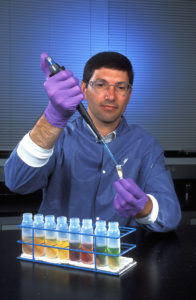Mar 17, 2021
Organic produce endorsed as ‘Dirty Dozen’ produce list published
The Environmental Working Group strongly endorsed organic produce as it again published its annual “Dirty Dozen” and “Clean Fifteen” lists.

EWG’s lists – the usefulness of which have been widely decried by conventional produce growers – were released Wednesday, March 17. The lists together make up EWG’s Shopper’s Guide to Pesticides in Produce, based on USDA data of trace pesticide residues on fruits and vegetables.
“Whether organic or conventionally grown, fruits and vegetables are critical components of a healthy diet,” EWG toxicologist Thomas Galligan said in a news release. “We urge consumers who are concerned about their pesticide intake to consider, when possible, purchasing organically grown versions of the foods on EWG’s Dirty Dozen, or conventional produce from our Clean Fifteen.”
This year, the USDA’s tests found residues of potentially harmful chemical pesticides on nearly 70% of the non-organic fresh produce sold in the U.S., according to the news release. Before testing fruits and vegetables, the USDA washes, scrubs and peels them, as many consumers do.
EWG said in its news release:
“Organic standards prohibit the use of synthetic pesticides, among other things. Eating organic food reduces pesticide exposure and is linked to a variety of health benefits, according to an article published last year in the peer-reviewed journal Nutrients. In four separate clinical trials, people who switched from conventional to organic foods saw a rapid and dramatic reduction in their urinary pesticide concentrations, a marker of pesticide exposure.
“Additional studies have linked higher consumption of organic foods to lower urinary pesticide levels, improved fertility and birth outcomes, reduced incidence of non-Hodgkin’s lymphoma, and lower BMI and reduced risk of Type 2 diabetes.
“Babies and children are particularly vulnerable to many of the health effects associated with many pesticides, as the American Academy of Pediatrics recognized in a 2012 report on organic food.”
However, EWG also quoted world-renowned pediatrician and epidemiologist Philip Landrigan as saying “an all-organic diet is simply not affordable or accessible for many Americans.”






